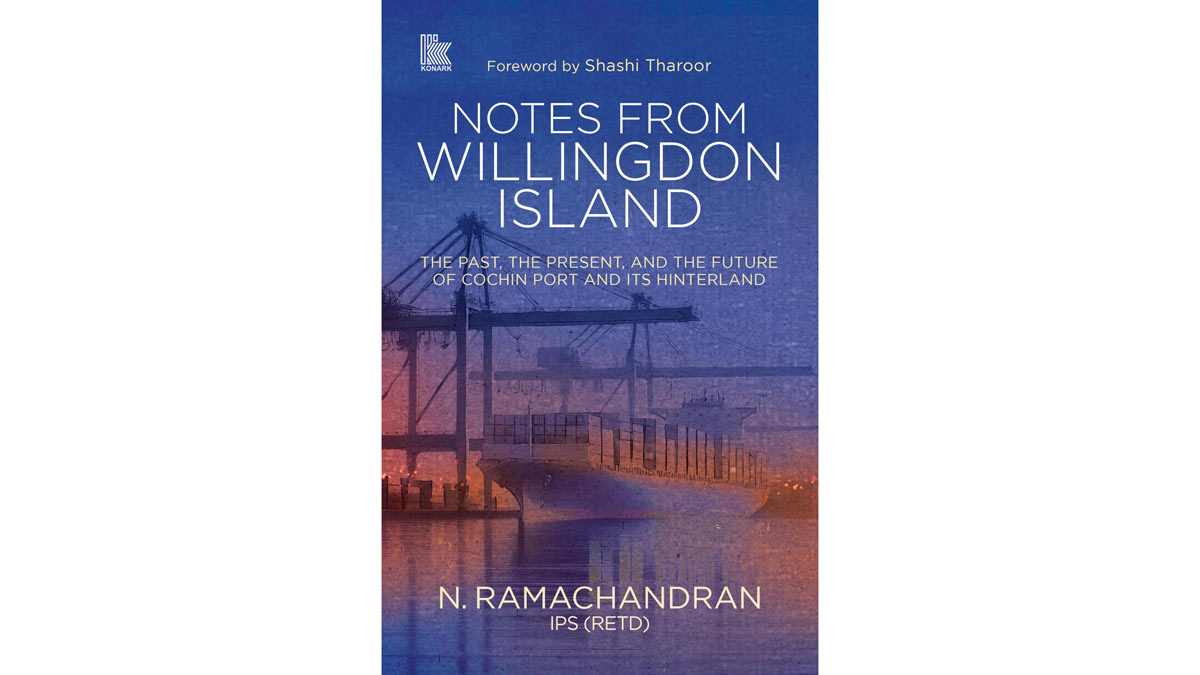‘Notes from Willingdon Island’ book review: A deep dive into Kerala's port transformation and economic vision

Managing a port is no small feat. It demands quick decision-making, skilful multitasking, occasional toughness and openness to change. Now place that challenge in a heavily unionised state like Kerala, where combative bargaining, inflated wages, and the ill-famed practice of nokkukooli (gawking wages) once wreaked havoc.
This is the backdrop against which N. Ramachandran, a former IPS officer, took charge of Cochin Port Trust in 2005. His tenure, until 2011, documented in Notes from Willingdon Island, presents a rare, hands-on account of how deep-rooted practices were flattened and long-overdue reforms implemented.
The book takes us inside Cochin Port’s transformation: from a union-heavy institution to a digitally-driven centre point of modern logistics. It also reflects Kerala’s larger spirit of rebuilding, demonstrating how endurance and timely political support can make change workable.
In the book, introduced by Congress leader Shashi Tharoor's foreword, the author recalls several telling episodes: a former chief minister of Kerala once deputed two ministers to support the author through a crisis until it was resolved; a powerful leader remained inaccessible till a local intermediary stepped in to assist the author; and at one point a local leader even resorted to abuse during negotiations with the author.
Skepticism surrounded Ramachandran's appointment. An officer of the 1978 Assam–Meghalaya cadre, Ramachandran had stepped into a role traditionally held by IAS officers. Critics dismissed him as a “bull in a china shop", while one newspaper labelled a police officer a misfit at the helm of a major port in the country. Undeterred, he and his team set about clearing cobwebs, rebuilding systems and preparing the port for the time ahead.
Among the book’s most compelling sections are those detailing landmark infrastructure projects and the push-and-pull that accompanied their implementation. These include the Vallarpadam International Container Transshipment Terminal, the Cochin LNG Terminal, and key highway and rail connectivity projects—initiatives that reshaped not only the port but also Kerala’s economic landscape. The book calls for reimagining Kerala’s maritime future, showing how responsible trade unionism, political support, and long-term vision can drive the state forward. It is unsparing in its assessment of the structural hurdles that continue to hold Kerala back.
In its concluding chapters, Ramachandran critiques the state’s ongoing economic stagnation and calls for diversification into sectors such as shipbuilding, blue tourism, and LNG utilisation—areas he sees as potential engines of resurgence. Interwoven with this forward-looking vision is a rich account of Cochin Port’s historic legacy, underscoring Kerala’s maritime identity and global relevance.
Notes from Willingdon Island is not only the story of one institution’s revival, but also a wide-ranging exploration of Kerala’s untapped potential. By positioning the port’s transformation within the broader context of state and nation, the book invites reflection from administrators, policymakers, and Kerala’s intelligentsia on reform, consensus building, and governance. Beyond everything, it highlights how leadership, political responsibility and the patience to traverse uncertainty are absolutely necessary for charting a viable and sustainable future for Kerala.
Notes From Willingdon Island
N. Ramachandran
Published by Konark Publishers Pvt Limited
pages: 334; price: Rs 900
Books Review